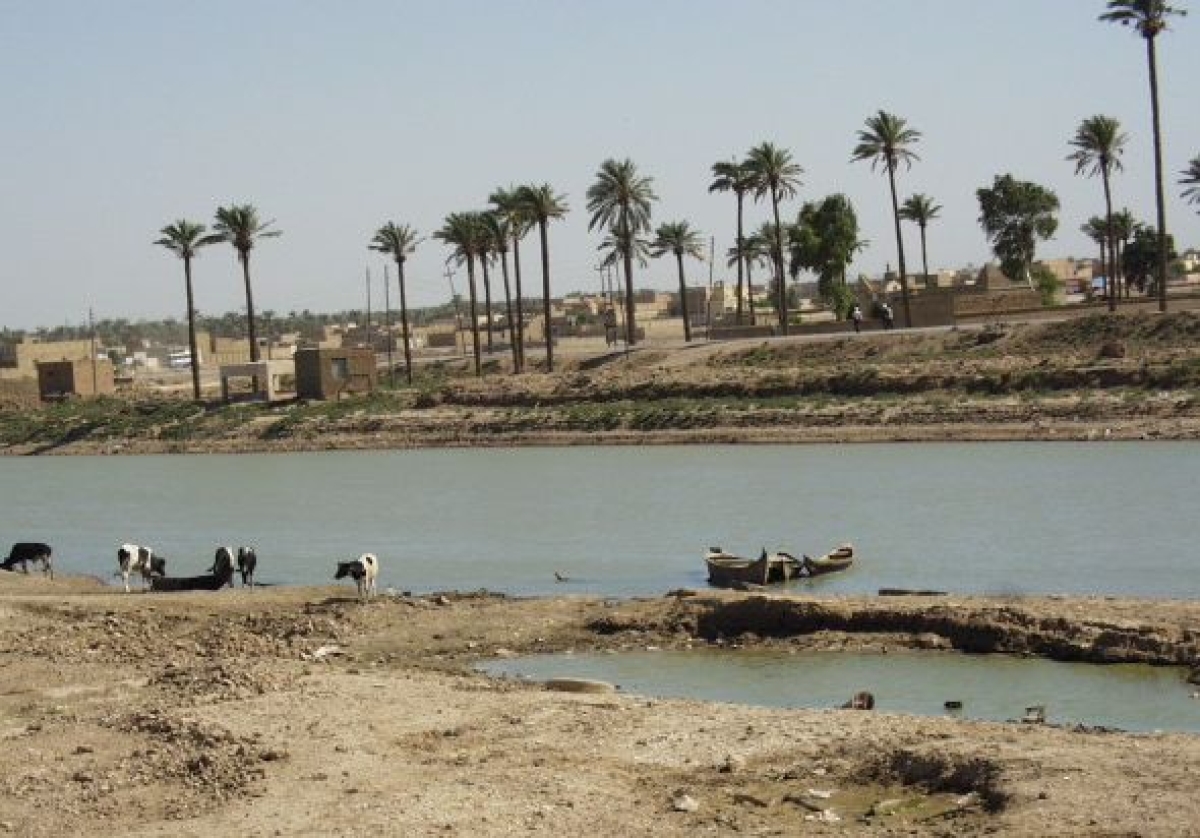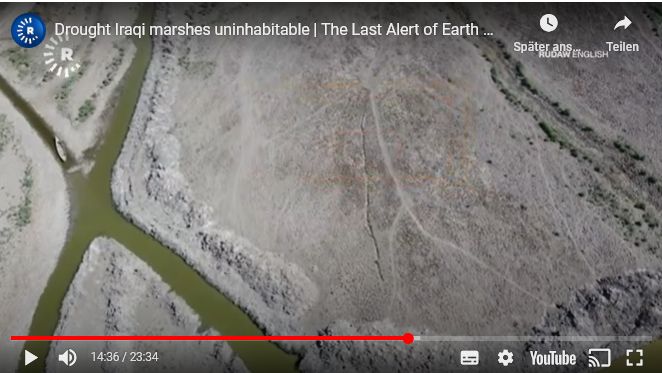Iraks Sumpfgebiete werden unbewohnbar

Marshen bei Amara, Bild: Thomas v. der Osten-Sacken
Von Saddam Hussein in den 90er Jahren weitgehend zerstört wurden die Sümpfe im Süden des Iraq, die Marschen, nach 2003 renaturiert. Jetzt trocknen sie erneut in Folge des Klimawandels aus. Eine ökologische Katastrophe mit gravierenden Folgen für die Menschen, die dort leben.
Um die Marschen ist es seit Jahren schlecht bestellt, das Gebiet, in dem einst der Garten Eden gelegen haben soll trocknet seit Jahren aus und die Böden versalzen.:
Both the Mesopotamian marshes, and the culture of the Marsh Arabs—or Ma'adan—like Mohammed who live in them, have UNESCO world heritage status. The Ma'adan have hunted and fished there for 5,000 years, building houses from woven reeds on floating reed islands where the Tigris and Euphrates rivers come together before pouring into the Gulf.
Even their beautifully intricate mosques were made of reeds.
But the marshlands have shrunk from 20,000 square kilometers (7,700 square miles) in the early 1990s to 4,000 (1,500 square miles) by latest estimates—choked by dams on the great rivers upstream in Turkey and Syria and the soaring temperatures of climate change. Only a few thousand of the quarter million Ma'adan who lived in the marshes in the early 1990s remain.
Der irakische Filmemacher Zhyar Hakim hat Film gedreht, der das ganze Ausmaß der Zerstörung dokumentiert:
